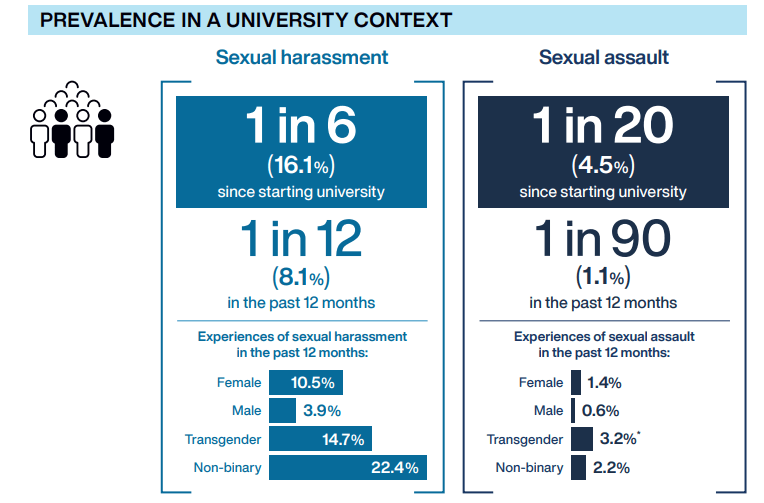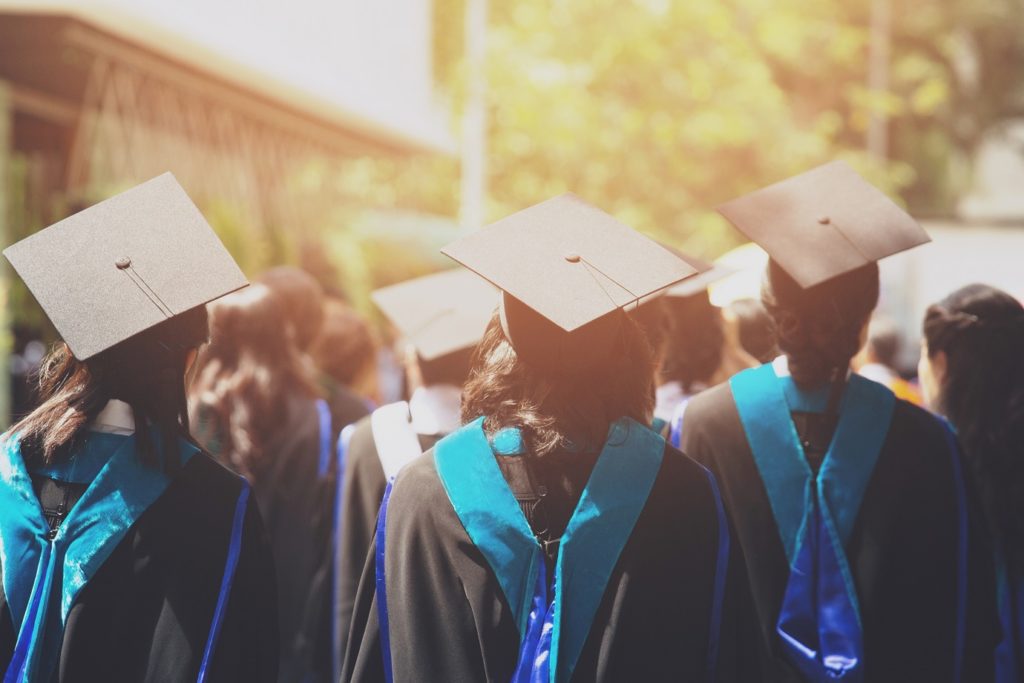One in six students have experienced sexual harassment since starting university, while one in 20 have been sexually assaulted, a new national survey has found.
And in the past 12 months, one in 12 students have experienced sexual harassment and one in 90 have been sexually assaulted.
The National Student Safety Survey, independently conducted by the Social Research Centre, has shone a light onto the scale of sexual harassment and sexual assault across 39 universities in Australia.
It found just 3 per cent of those who had experienced sexual harassment made a formal complaint to the university, and 5.6 per cent of those who were sexually assaulted made a complaint.
Female students (10.5 per cent), transgender students (14.7 per cent) and non-binary students (22.4 per cent) were most likely to have experienced sexual harassment in a university context in the past 12 months, compared to male students (3.9 per cent).
Notably, pansexual (21.5 per cent), bisexual (17.7 per cent) and gay or lesbian students (12.3 per cent) were more likely to have experienced sexual harassment at university in the past 12 months. Students with disabilities were also more likely to have had these experiences.

Renee Carr, Executive Director of Fair Agenda, said universities are continuing to fail in their prevention and response to sexual violence.
“Survivors, student leaders and advocacy groups have been speaking out about sexual violence at universities and residential colleges for decades,” Carr said.
“They’ve been raising concerns since before #MeToo, and we’re still not seeing appropriate action – from universities, or from the federal government who have been content to leave it to universities to handle.” she added.
“The federal government should be making sure the institutions they’re funding are held accountable for ensuring safe environments, and they should have been doing it years ago.”
Carr said the survey responses of students today are “eerily similar” to those announced in 2017.
“Universities have known about the scale of sexual violence being experienced by students for years. Advocates have spoken up time and time again about the need for better responses – so that university processes aren’t re-traumatising survivors, and the impacts of sexual violence don’t force students out of their education. Years later, why on earth don’t survivors know where to find support?”
Universities Australia’s Chair John Dewar said in a statement the situation is “unacceptable” and apologised to survivors of sexual harassment and assault.
“No instance of sexual harassment or sexual assault should be tolerated, and our institutions must set the tone for what is expected from our future graduates,” Dewar said.
Australia’s Sex Discrimination Commissioner Kate Jenkins said sexual harassment and sexual assault remain far too prevalent in the community, with women, young people and intersectional groups facing unacceptably higher risk.
“Today’s release of the 2021 National Student Safety Survey Report makes it clear that sexual harassment and sexual assault remain a serious problem within Australian universities,” she said.
Jenkins said it is not possible to compare results from the survey to the Australian Human Rights Commission’s 2016 Change the Course survey due to methodological changes.
“To make real change and create setting where students are safe and respected, it is incredibly important for universities to draw on a strong evidence base,” she said.
“Unfortunately, due to methodological changes made in this survey, it is not possible to compare the NSSS results to the Change the Course survey. The ability to compare data points over time is an important component of rigorous longitudinal research. This was a missed opportunity to measure universities’ progress over the past five years.”
If you or someone you know is impacted by sexual assault or family and domestic violence, you can call 1800RESPECT on 1800 737 732 or visit 1800RESPECT.org.au.


